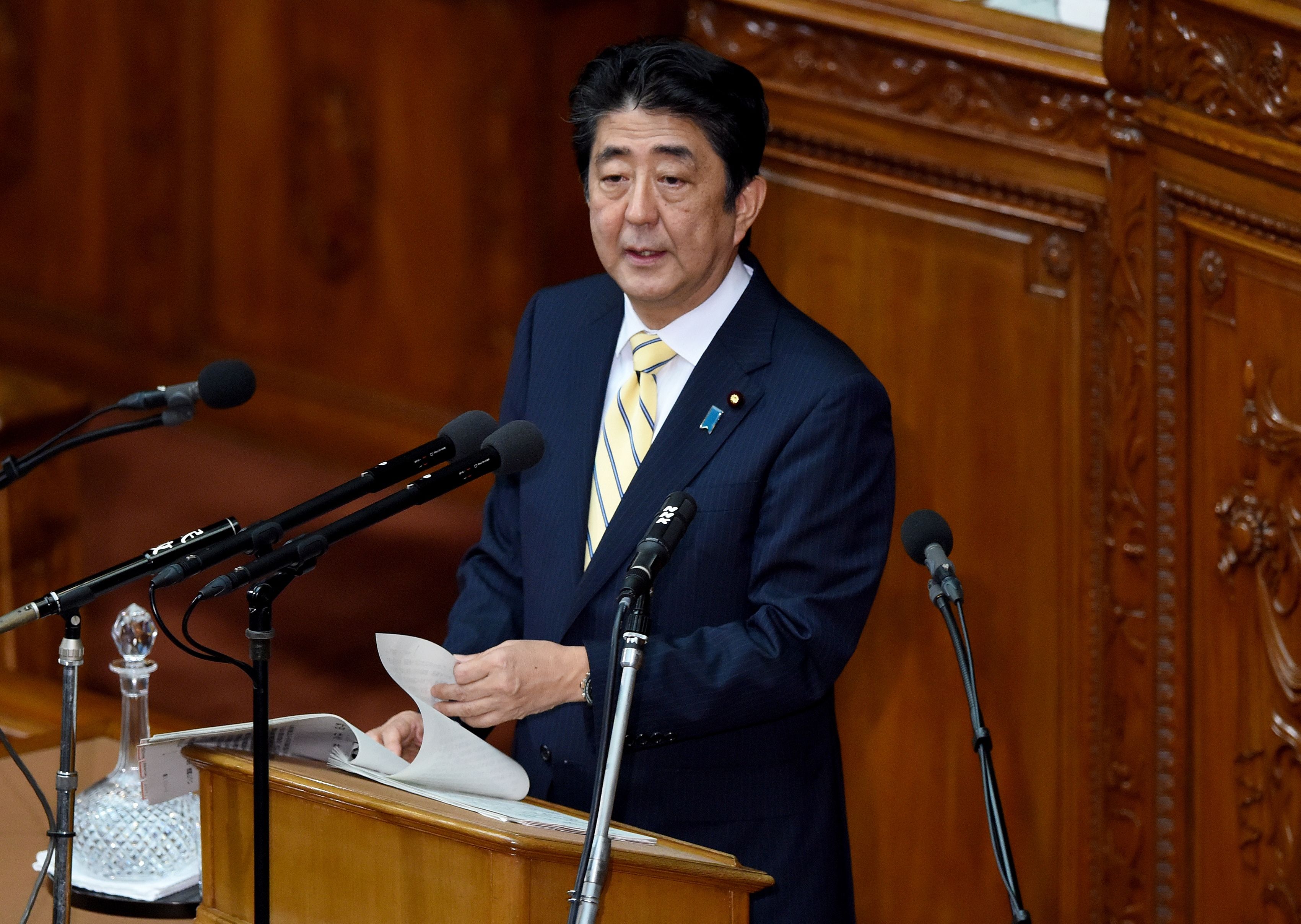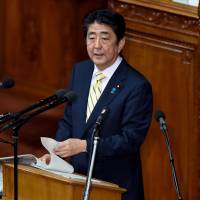Standing ovations during speeches are standard in many Western parliaments. But controversy has erupted after Prime Minister Shinzo Abe, delivering a key policy speech Tuesday, set off an ovation for the police and the Self-Defense Forces.
Modesty and humility are valued in Japan, and few politicians receive or initiate standing ovations in the Diet.
But when Abe urged lawmakers to praise the police and SDF members on missions to protect Japanese territory, many members of his Liberal Democratic Party stood and clapped, stopping his speech for about 20 seconds.
Lower House Speaker Tadamori Oshima urged them to sit down.
Opposition lawmakers suspect Abe and the LDP had planned the standing ovation.
Opposition parties have filed a protest, saying the "extremely unusual" gesture violates Diet custom and could disrupt Diet sessions.
On Wednesday, LDP lawmakers on the Steering Committee of the Lower House agreed that standing ovations are "not appropriate," and committee Chairman Tsutomu Sato cautioned Deputy Chief Cabinet Secretary Koichi Hagiuda.
"It's not strange to see (a standing ovation) in the legislature of a country like America, but (Tuesday's event) did not look like a spontaneous action" by lawmakers, said Shinjiro Koizumi, a popular Lower House member from the LDP.
Opposition lawmaker Ichiro Ozawa has criticized the ovation as being reminiscent of countries like China and North Korea.
A senior government official emphasized that the ovation had been not for Abe himself, but for police and SDF officers. "This is nothing like totalitarianism," the official said, speaking on condition of anonymity.




















With your current subscription plan you can comment on stories. However, before writing your first comment, please create a display name in the Profile section of your subscriber account page.